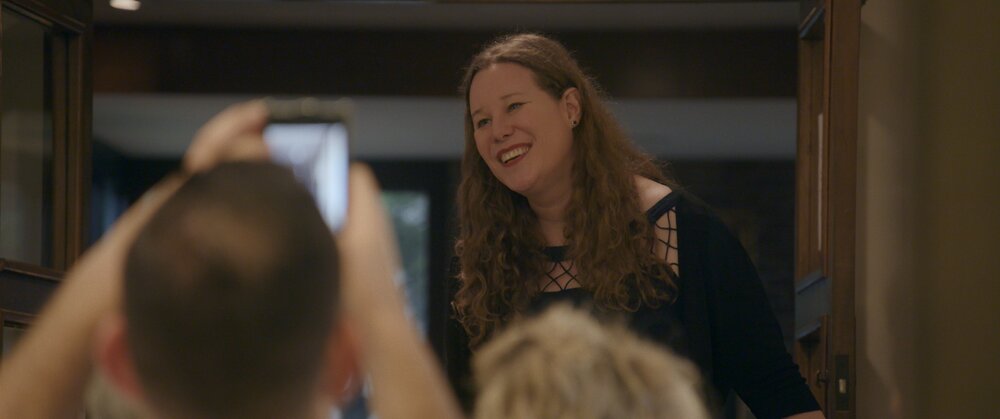“As SOFFAS, it’s important to see in film and other art mediums, the grace and happiness that gender transition can lead to.”
by Maisie MacKinnon
(To watch the film’s trailer, keep up with the film’s festival screenings, and to learn more about upcoming streaming dates, go to The Sound of Identity Facebook page.)
I’VE ALWAYS believed that faith in the future of a society is measured by the art that is created in the present.
That’s why, for your own viewing pleasure and for your own betterment (in that order), I’m going to insist that you watch The Sound of Identity, a documentary film about a transgender woman opera singer that has scant references to her transition experience.
Seriously, you ask? Is it possible that we’ve arrived at a point in the transgender narrative when the greater interest in a transwoman’s story is her ambitions, her achievements, her talent and the contribution that her art brings to the world?
The Sound of Identity is a story about Lucia Lucas, the first transgender opera singer in the world making her American debut as the lead singer in Mozart’s Opera, Don Giovanni, in bible-belt Oklahoma, no less, one of the reddest states in the U.S.
Director James Kicklighter weaves three art forms—opera, filmmaking and interview—into a single viewing experience that made Lucia’s seemingly different life something I could relate to, and more surprisingly, opera something that I suddenly saw as relevant.
Take the opera’s lead character himself. Don Giovanni is a toxic predator, a master of manipulation and disguise, someone who, as choreographer Denni Sayers explains, “abuses his position of wealth and power…in order to enjoy the chase.”
Think about that for a moment regarding today’s political and social justice atmosphere.
Or the way the film’s gorgeous cinematography juxtaposes surreal angles of Tulsa’s famous black gold architecture with the mundane, fluorescent lit and sweat-producing rehearsal hall; or contrasts a vast and opulent theater behind Lucia’s solo interviews with the plain walls of her hotel apartment.

Photo credit: The Sound of Identity, directed by James Kicklighter. Kirkpatrick & Kinslow Films
Indeed, it is in the dimly lit and intimate scenes after long rehearsal days where, as if I were secretly sharing the couch, my heart surrendered to the vulnerable conversations between the two main players, Lucia Lucas and Tobias Picker, Tulsa Opera’s Artistic Director, and one of the most famous American composers still working today. Sharing understated, but powerful childhood experiences about being subjected to innocent ignorance, deliberate injustice, and eventual driving ambitions, I became deeply connected with their past journeys and their ongoing fates.
From the opening scene, composer and conductor Nicolas Repetto’s film score sets a deeply anticipatory tone over the glowing Tulsa skylines, and the mounting stakes at play in the story.
The exhaustive work behind Lucia’s upcoming performance, and the future of her career are primary, of course. But it is her depth in character that Kicklighter continues to reveal throughout the film that intrigues me the most. It’s also where we come to understand the basis for the creative risk-taking that she and the other central players are willing to take.
Tobias’s predominantly professional concern for the future of Tulsa Opera, for instance, is complicated by his personal history, his subsequent moral convictions, and his underlying goals for social equality. And Lucia’s initial insistence that gender transition takes a modest place in her life events, nevertheless, becomes an extraordinary example of how willfully choosing our own, aligned, identities, will change the world.
That each of these magnificent artists, from Lucia and Tobias, to the other opera singers (OMG, check out Hidenori Inoue as Comedatore), to the choreographer, composer and others, and especially the film’s director and editor, were able to merge the relevance of a two-hundred-year-old-plus opera with the social equality concerns affecting us today, is an artistic triumph—and a testament to faith in the future of our society, indeed.
* * * *
The Sound of Identity just won two prestigious awards including Honorable Mention in the Documentary category, and the Programmers Award of Excellence at the OUTshine film festival in in Miami. It was also chosen for Special Screening at the Macon Film Festival, in Georgia.

